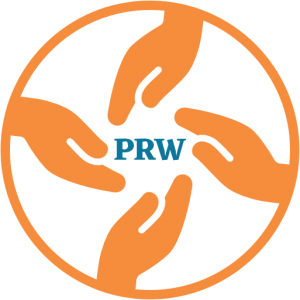John Paul Stephens
Associate Professor
Case Western Reserve University
john.p.stephens@case.edu
weatherhead.case.edu/faculty/John-Paul-Stephens
Related Research Interests
Generally speaking, I am interested in how individuals involved in organizing are aware of their involvement with the system of collective work as they coordinate their actions with others. This means that I care about how individuals mindfully or carefully engage their relationships with others at work, and how these relationships benefit the individuals involved. Some of my work has looked at how people can use feedback from their relationships to learn more about themselves, such as in the Reflected Best Self Exercise. Other work has focused on measuring the quality of the human connections at work and examining the positive outcomes predicted by connection quality. More specifically, much of my work on connection quality has focused on the role of a connection’s emotional carrying capacity, or ability to hold more and different types of emotional expression on outcomes such as individual and team resilience, and knowledge creation. I am also interested in how individuals, through the actions that occur in relationship with others, come to know the work of the group as a whole, over and above the effects of the discrete relationships involved. With this in mind, my other research focuses on mechanisms, such as aesthetic knowledge, that help individuals be more knowledgeable of the gestalt quality of their interrelating with others. While interested in micro-, individual-level phenomena, more recently I have begun to explore how relational mechanisms such as emotional carrying capacity, and discourse among interorganizational
Related Publications
- Hajjar, L., Gittell, J. H., Stephens, J. P., Meier, N., & Cutcher Gershenfeld, J. Seeing the whole together through relational mapping: A method for engaging in complex systems change. The American Review of Public Administration, OnlineFirst. https://doi.org/
10.1177/02750740241290807 - Stephens, J.P., Srour, Y., & Carmeli, A. (2025). Emotional Expression between CEO and Chairperson as a Micro-foundation of Organizational Capabilities: An Exploratory Mixed Methods Study. Journal of Management Studies, 62(1), 270-314. https://doi.org/10.
1111/joms.13050 - Hinz, J.*, Stephens, J.P.*, & Van Oosten, E. (2022). Towards a pedagogy of connection: A critical view of being relational in listening. Management Learning. 53(1), 76-97. https://doi.org/10.
1177/13505076211047506 - *Indicates shared first-authorship
- Irani, E., Niyomyart, A., Dolansky, M., Stephens, J.P., Ganocy, S.J., Josephson, R., & Hickman, Jr., R. (2021). A pilot randomized clinical trial of a teamwork intervention for heart failure care dyads. Heart & Lung, 50(6), 877-884. https://doi.org/10.
1016/j.hrtlng.2021.07.008 - Stephens, J.P. (2021). How the show goes on: Using the aesthetic experience of collective performance to adapt while coordinating. Administrative Science Quarterly, 66(1), 1-41. https://doi.org/10.1177/
0001839220911056 - Thomas, N.*, Sugiyama, K., Rochford, K.*, Stephens, J.P*. & Kanov, J. (2018). Experiential organizing: Pursuing relational and bureaucratic goals through symbolically and experientially oriented work. Academy of Management Review, 43(4), 749-771. https://doi.org/10.
5465/amr.2016.0348 - *Indicates shared first-authorship
- Stephens, J.P. & Kanov, J. (2017). Stories as artworks: Giving form to felt dignity in connections at work*. Journal of Business Ethics, 144(2), 235-249. https://doi.org/10.
1007/s10551-016-3067-0 - *Awarded the Dennis R. Murphy Faculty Research Award by Western Washington University College of Business and Economics (to Jason Kanov)
- Stephens, J.P., & Carmeli. (2017). Relational leadership and creativity: The effects of respectful engagement and caring on meaningfulness and creative work involvement. In S. Hemlin, and M. Mumford (Eds.) Handbook of Leadership of Creative Work: 273-296. Northampton, MA: Edward Elgar
- Stephens, J. P., & Carmeli, A. (2016). The positive effect of expressing negative emotions on knowledge creation capability and performance of project teams. International Journal of Project Management, 34(5), 862-873.
- Stephens, J. P., & Kanov, J. (2016). Stories as artworks: Giving form to felt dignity in connections at work. Journal of Business Ethics, 1-15. doi:10.1007/s10551-016-3067-0
- Stephens, J.P. (2016). Adapting for the sake of beauty: The role of leaders, levels, and learning in the coordination of a choral group. In K.D. Elsbach and B.A. Bechky (Eds.) Qualitative Organizational Research, Vol. 3: Best Papers from the Davis Conference on Organizational Research: 225-263. Greenwich, CT: Information Age Publishing.
- Stephens, J.P., Heaphy, E., Carmeli, A., Spreitzer, G., & Dutton, J. (2013). Relationship quality and virtuousness: Emotional carrying capacity as a source of individual and team resilience. Journal of Applied Behavioral Science, 49(1), 13-41.
- Stephens J.P., Heaphy, E. & Dutton, J. (2012). High Quality Connections. In K. Cameron & G. Spreitzer (Eds.) The Oxford Handbook of Positive Organizational Scholarship, pp. 385 – 399. New York: Oxford University Press.
- Stephens, J.P. (2011). Making research sing: Sharing, building, and feeling knowledge in conversation. In A. Carlsen & J. Dutton (Eds.) Research Alive: Exploring Generative Moments of Doing Qualitative Research. Copenhagen Business School Press.
- Spreitzer, G., Stephens, J.P., & Sweetman, D. (2009). The Reflected Best Self field experiment with adolescent leaders: Exploring the psychological resources associated with feedback source and valence. Journal of Positive Psychology, 4 (5), 331-348.
